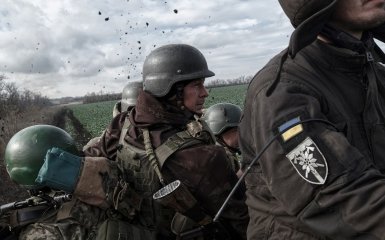According to the spokesman of the 42nd brigade of the Armed Forces of Ukraine, Vadym Ivaneshchenko, units of the occupation army of the Russian Federation are approaching their positions.
What is known about the situation in the Kharkiv region
Vadym Ivaneshchenko, a spokesman for the 42nd Ukrainian Brigade, which is fighting around Hlyboke, said that Russian troops were approaching their positions. He said his unit is "fully equipped," although drones and EW equipment are always needed, the publication said.
According to Juliana Röpke, an analyst of the German edition of Bild, during the last three days, the occupying army of the Russian Federation captured about ten settlements in the Vovchansk region.
Russian invasion forces attacked the Kharkiv region at two locations from the north, capturing at least ten villages in three days, the analyst noted.
How is the evacuation from Vovchansk going?
Another Western edition of The Telegraph notes in its material that most of the residents of Vovchansk have already managed to evacuate.
After two years on the front lines of the Ukrainian war, the residents of the border town of Vovchansk with Russia understand well what peace and quiet is. Cross-border skirmishes have been a part of life here since the beginning of the invasion. However, since Friday, what is usually referred to as background noise has turned into deafening thunder as Russian troops launched a renewed ground offensive in northeastern Ukraine, the report said.
Before the start of the full-scale war, about 17,000 residents lived in Vovchansk.
After the temporary occupation and liberation of the city by the Ukrainian military, about 3,000 residents remained in it.
Many left independently in their cars, and the rest were organised and taken away by buses, volunteers, and the police.
The situation is just terrible, the glider bombs are falling very close everywhere, and a bunch of Russian drones are flying here. It's always been quite crazy here, but nothing as crazy as now — before the Russians at least gave us a little rest between shelling, — says 51-year-old Olena, who agreed to evacuate.
Evacuation teams must take significant risks and resort to peculiar "breakthroughs" to evacuate civilians.
Russian drones can fly at a speed of about 80 km per hour, so try to keep at least 100 km per hour or more when we enter," the law enforcement officer told reporters.
The evacuation itself takes place under the constant roar of artillery. From time to time, all participants in the process have to fall to the ground.
The evacuees were taken to Kharkiv. Some have relatives there, and the rest will be placed in temporary shelters.
It was crazy, just non-stop shelling for three days. It was simply unbearable for the children — many destroyed houses and all the forests are on fire. Now we are going to Kharkiv, where, I hope, the social workers will find us a place to stay. God forbid that the Russians start attacking Kharkiv as well, because we need peace, says 45-year-old Oksana Velychko.




